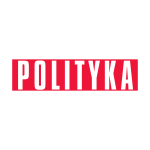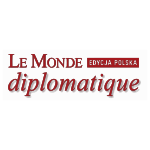The exhibition by Mikołaj Sobczak provides a platform for discussing marginalised elements of history and their significance in the shaping of collective identities.
The exhibition opens with a monumental installation that brings to mind an Orthodox church iconostasis which, in accordance with Orthodox tradition, introduces the audience to the mystique of the events, while at the same time shielding the further, hidden space of identity. The exhibition is arranged in a way that allows the viewer to cross a metaphorical boundary and immerse themselves in the film “Upiór” ("Phantom") which was produced in collaboration with the Ukrainian performer Taras Gembik. This fantastic story, with its dark atmosphere harking back to the tradition of German Expressionist cinema, guides the viewer through the meanders of intertwined histories: the revindication of Orthodox religious buildings, forced conversions to Roman Catholicism, the revolt of Ukrainian peasant women and Poland's attempts to acquire overseas colonies. The figure of Upiór (Phantom) serves as a medium that allows us to penetrate the latent reality. In the symbolic layer of the film, the artist points to the figure of an exile deprived of his home and the possibility to tell his story – the Orthodox church inhabited by Upiór is to be demolished.
While looking at past events, Mikołaj Sobczak opens a debate on the history of imperialism in Central and Eastern Europe. Although the colonial past of Europe is identified with Western imperialism, nowadays we increasingly analyse Central and Eastern European history in terms of postcolonial theory*. Such recognition may be encountered with resistance due to the difficulty of simultaneous internalisation of the roles of the oppressor and the oppressed. Reflection on this issue paves the way for further theoretical research on possible processes of emancipation and the healing of transnational relations.
In order to discuss the decolonisation of Ukraine today, it is necessary to look again at our own entanglement in colonial processes. If memory is a condition for peace, then myths and historical simplifications must be abandoned.
* According to some scholars, terms such as feudalism or nationalism should be used when describing the events taking place in Central and Eastern Europe, because the term “colonialism”, which originated in Western culture, and the criteria assigned to it do not reflect the nature of the phenomena in this part of Europe.
____________________________________________________
Curator: Ada Piekarska
Artistic collaboration: Taras Gembik
Expert consultations: Daniel Beauvois, Łukasz Kozak.
Mikołaj Sobczak was born in 1989 in Poznań. He is a graduate of the Academy of Fine Arts in Warsaw ( degree in the Spatial Activities). He also studied at the Kunstakademie Münster in Germany and received a scholarship from the Universität der Künste in Berlin. He is currently a fellow at the Rijksakademie voor Beeldende Kunsten in Amsterdam. In 2021, he became a finalist of the 10th edition of the Spojrzenia competition. Winner of the POLITYKA Passport 2021 in the category of Visual Arts; ex aequo with Jana Shostak; winner of the ING Polish Art Foundation Award granted during the Warsaw Gallery Weekend (2019).
He works with video art, painting and performance.
Solo exhibitions: “Metamorphoses” (2021), “New Kingdom” (2019) at the Polana Institute in Warsaw. Group exhibitions, including “Illiberal Arts” at Haus der Kulturen der Welt in Berlin (2021), “In the Beginning Was the Deed!” at Arsenal Gallery in Bialystok (2021), “Battlefield” at Galeria Bielska BWA in Bielsko-Biala (2020), “Warsaw under Construction: Something Common” at the Museum of Modern Art in Warsaw (2020), “Artists’ Film International” at Whitechapel Gallery in London (2018), “Transcorporealities” at Museum Ludwig in Cologne (2019).
Taras Gembik is a performing artist and cultural worker from Volhynia in Ukraine (he was born in 1996 in Kamień Koszyrski). He has a double Ukrainian and Polish nationality. He cooperates with the Museum of Modern Art in Warsaw; for the past three years, he has been giving guided tours of exhibitions, translating art into the language of personal empathy and beauty, in which boundaries disappear. Together with Maria Beburia, he co-founded the art group “BLYZKIST” (Proximity), focusing on creating a multi-level community of people with migration experience.
Exhibition architecture: Billy Morgan
Graphic design: Karolina Pietrzyk and Mateusz Zieleniewski
Exhibition has been made possible thanks to the support of Helena Czernecka and REK Foundation.



